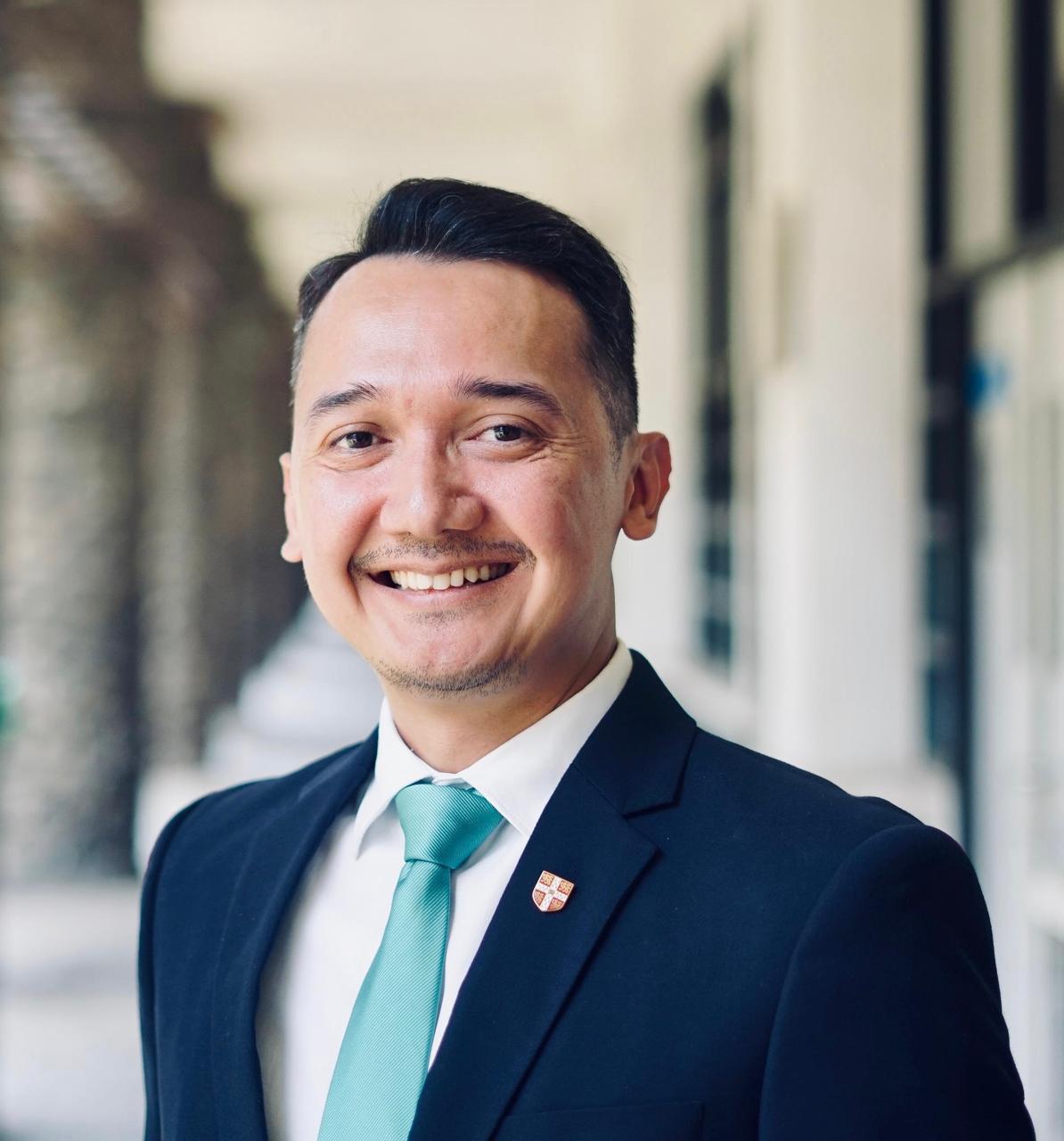

General manager legal corporate governance division | Telkomsel



Antonius Alexander Tigor
General manager legal corporate governance division | Telkomsel
Team size: 12
What are the most significant cases, projects and transactions that you and your legal team have recently been involved in?
In my capacity as in-house counsel, I have had the privilege of leading several landmark projects that not only shaped the trajectory of my organisation but also had a profound impact on Indonesia’s infrastructure and telecommunications landscape. Among the most significant projects was my role in the Whoosh High-Speed Train Project, the first high-speed railway in Southeast Asia, connecting Jakarta and Bandung. This US$448m initiative incorporated the Global System for Mobile Communications – Railway (GSM-R), aligned with the standards of the International Telecommunication Union (ITU).
I also spearheaded negotiations between Indonesian authorities and Chinese entities. These negotiations were critical to aligning diverse legal, regulatory, and commercial expectations, ultimately securing the framework that enabled the Whoosh project to proceed. Through this process, I demonstrated not only legal expertise but also the ability to facilitate international collaboration, safeguard national interests, and secure legal certainty for a project of immense national significance.
Another equally pivotal matter was the Corporate Action in the Fixed-Mobile Convergence Project, a strategic partnership between Singapore Telecommunications (SingTel) and Telkom Indonesia. I directed the legal aspects of this merger, focusing on ensuring compliance with both Singaporean and Indonesian telecommunications regulations. The seamless execution of the transaction facilitated uninterrupted service for millions of customers, while simultaneously enhancing service delivery across fixed and mobile networks.
From a commercial perspective, I successfully guided the Jakarta-Bandung high speed rail can save 3.2 trillion rupiah (US$197 million) per year in fuel (costs). The ability to create value while managing legal and regulatory risks underscores my approach of positioning the legal function not as a barrier, but as a strategic enabler of organisational objectives.”
How do you approach managing legal aspects during periods of instability or crisis to ensure the organisation’s resilience?
Managing the legal aspects of such complex, high-value projects also required resilience during periods of instability. In the Whoosh project, for example, I initiated and implemented comprehensive risk assessment protocols that identified potential legal and financial exposures early in the project lifecycle. By proactively mapping out risks, the organisation was able to minimise liabilities and protect assets valued at nearly half a billion dollars. Furthermore, I led negotiations with regulators and shareholders, securing approvals within just two months of project initiation—a timeline that would not have been possible without structured stakeholder engagement and rigorous compliance preparation.
Taken together, these experiences highlight how I approach legal leadership: with a focus on proactive risk management, rigorous compliance with multi-jurisdictional frameworks, and value creation for the organisation. Whether in pioneering infrastructure such as the Whoosh High-Speed Train or in transformative corporate actions such as the Fixed-Mobile Convergence Project, my role has consistently been to ensure that legal considerations are not merely protective but are integral to driving sustainable business outcomes.”
What strategies do you employ to ensure the successful digital transformation of a legal department while maintaining compliance with your country’s data protection laws?
“To ensure the successful digital transformation of the legal department while maintaining strict compliance with Indonesia’s data protection laws, I apply a strategy that combines innovation, compliance, inclusivity, and business enablement to ensure data protection compliance in the biggest customer markets in the country.
One of the most impactful initiatives I introduced was the creation of a Privacy Policy Generator, an in-house tool designed to automate and streamline the drafting and updating of privacy policies. This innovation not only ensured adherence to evolving data protection regulations but also reduced manual workloads, minimised legal risks, and improved efficiency across departments.
I also initiated a “data protection for all” program, recognising that privacy and consent must be accessible to everyone, including vulnerable persons. Under my leadership, the team developed inclusive videos and accessible wording so that the company’s privacy policy and consent forms could be understood by deaf and blind stakeholders. This initiative underscored our commitment to ESG values by embedding fairness, accessibility, and inclusivity into corporate governance.
I anchor digital transformation on cultural pillars of innovation, agility, simplicity, lean processes, compliance, security, efficiency, effectiveness, and speed to market. Strategically, these initiatives have enabled us to generate revenue by accelerating business readiness, comply with regulations, align with global business trends, and strengthen risk avoidance.
In parallel, I led the implementation of ISO 27001 ISMS (Information Security Management System) within the company, embedding international standards of information security into our governance framework. To reinforce these efforts, I also hold global certifications from the International Association of Privacy Professionals (IAPP), including CIPP/Europe, CIPP/Asia, and AIGP. These qualifications enable me to deliver globally benchmarked, high-standard results, ensuring that our digital transformation is both secure and compliant.
Ultimately, I view digital transformation not simply as the adoption of new technology but as a holistic cultural shift. By embedding inclusivity, leading ISO 27001, leveraging global certifications, and creating practical innovations, the legal department now acts as both a guardian of compliance and a strategic enabler of sustainable and inclusive business growth.”
Have you had any experiences during your career as a lawyer that stand out as particularly unique or interesting?
“One of the most unique and defining experiences in my career as a lawyer has been the opportunity to build and maintain a global professional network across 160 countries and territories. This was made possible through my selection as a Chevening Scholar, the UK Government’s flagship global scholarship programme that identifies individuals with strong leadership potential from around the world.
Being part of the Chevening community has been transformative. Beyond the academic enrichment, it gave me access to an extraordinary network of professionals and leaders across multiple jurisdictions, industries, and cultures. This global reach has allowed me to approach legal issues with a truly international mindset, benchmarking best practices, anticipating cross-border risks, and adopting governance frameworks that meet both local regulatory standards and global expectations.
In practice, this network has proven invaluable in guiding complex negotiations, managing compliance across multiple jurisdictions, and embedding robust governance standards into the organisations I serve. It has also broadened my ability to act not only as a legal advisor but as a strategic partner, connecting global insights with local realities to enable sustainable business outcomes.
What stands out to me most, however, is the sense of humility, inclusivity, and responsibility that comes with this reach. To be a lawyer with a global network across 160 countries is not simply a privilege—it is a commitment to ensuring that the law is used to build trust, foster collaboration, and drive meaningful change that transcends borders.”
How can general counsel foster a corporate culture that supports ESG principles and compliance across all levels of the organisation?
I believe fostering a corporate culture that truly supports ESG principles and compliance requires embedding integrity, accountability, and transparency into the daily operations of all organisational levels. The legal function plays a pivotal role not only in ensuring adherence to regulatory frameworks but also in shaping the values that guide decision-making across the company.
One of the most important pillars in cultivating such a culture is ensuring that all employees and leaders are mindful of conflicts of interest. A conflict of interest arises when an individual or group has personal, family, or economic interests that conflict with the Company’s interests, which may lead to subjectivity in decision-making or company management. To safeguard objectivity and fairness, it is essential that all internal stakeholders— members of the Board of Commissioners, the Board of Directors, and all employees—prioritise the Company’s interests above any other considerations.
In practical terms, this means that any party with a conflict of interest in the adoption of a resolution or in the execution of responsibilities must refrain from participating in the discussion or decision-making process.
Individuals are required to disclose potential or actual conflicts of interest by completing a formal conflict-of-interest form, ensuring full transparency.
Employees must promptly report any potential conflict to the Board of Directors through their superiors in a hierarchical manner, ensuring accountability and traceability.
Beyond conflict-of-interest governance, I also led the implementation of ISO 37001 (Anti-Bribery Management System). This milestone elevated the Company’s ESG framework by embedding anti-bribery and anti-corruption safeguards into our governance practices. Importantly, this initiative not only strengthened compliance but also directly supported the Company’s commercial growth. In practice, ISO 37001 certification has become a prerequisite for participation in commercial auctions with several major entities, thereby expanding our access to business opportunities and protecting revenue streams.
In addition, I follow the ASEAN Corporate Governance Scorecard (ACGS) standards, even if they are not strictly required for non-listed companies, because I firmly believe that transparency and accountability should exceed minimum compliance obligations. Adopting these standards reflects our commitment to building trust—an asset that is earned through consistent ethical practice, not demanded.
Ultimately, these initiatives demonstrate how legal leadership within the ESG framework can both mitigate risk and enable business growth. By embedding conflict-of-interest protocols, spearheading ISO 37001, and aligning with international governance standards, the organisation not only safeguards its reputation but also secures the trust of stakeholders, unlocks new revenue channels, and reinforces its commitment to long-term sustainable value creation.”